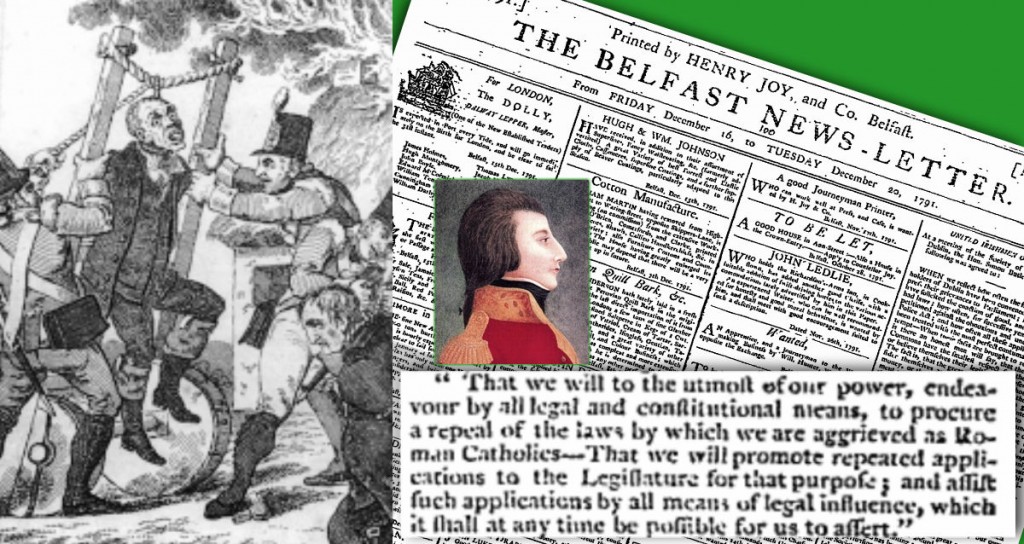
On the 9 November 1791 the Society of United Irishmen was formed in Dublin, having met the previous month in Belfast. Spurred on by Theobold Wolfe Tone’s pamphlet titled, An Argument on Behalf of the Catholics of Ireland, these young radicals proposed three resolutions, which were to guide the new movement forward and which left a lasting impression on generations of Irish men and women.
Firstly, that there existed the need for ‘a cordial union among all the people of Ireland’; secondly that a complete and radical reform of the representation of the people in Parliament was needed and, thirdly, that this reform should include ‘Irishmen of every religious persuasion’. The new organisation immediately tried to bring about change and Tone through his work as secretary of the Catholic Committee, organised a Catholic Convention in Dublin in 1792.
Although a Catholic Relief Act was passed in 1793, which rescinded some of the harsh Penal Laws, the United Irishmen soon turned their attention to France where they were heavily influenced by the French revolutionary ideals of ‘Liberty, Equality, Fraternity’.
When the United Irishmen were proclaimed a secret society and members arrested, Tone made for America, and then France but made known his objectives for Irish Independence and that he wished:
To unite the whole people of Ireland, to abolish the memory of all past dissensions, and to substitute the common name of Irishman in place of the denominations of Protestant, Catholic and Dissenter – these were my means’
The 1798 rebellion would soon follow and although achieving initial success was brutally suppressed, thereby ending the ideals of the United Irishmen in uniting the people of Ireland.
Source newspaper: www.irishnewsarchives.com
Download:
Belfast Newsletter, 16 December 1791;
Download: Belfast Newsletter 1738-1938, Friday, September 14, 1792
#UnitedIrishmen #history #irish #WolfeTone


